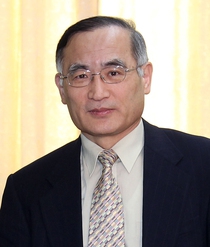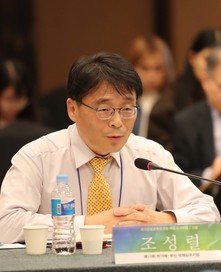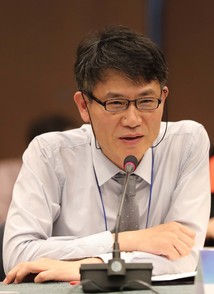Posted on : Sep.5,2018 17:07 KST
Modified on : May.8,2019 09:31 KST
 |
|
Kim Yeon-chul, Director of the Korea Institute for National Unification
|
Experts weigh in on the special delegation to North Korea and its role
 |
|
Kim Yeon-chul, Director of the Korea Institute for National Unification
|
The South Korean special delegation that’s heading to North Korea on Sept. 5 is carrying a heavy load. When the special delegation visited the North this past March, its role as a mediator was to confirm the inter-Korean summit and pave the way for a North Korea-US summit. But given that North Korea and the US are currently unable to narrow their differences over denuclearization and normalizing relations, the special delegation’s mission has become even more challenging. In this article, we’ll be passing along the advice that experts on North Korea-US relations have for the special delegation.
Defining the outlines of the inter-Korean summit
First of all, experts mentioned the importance of finalizing the schedule and the agenda of the inter-Korean summit.
“Based on their assessment of the period following the Apr. 27 Panmunjom summit, South and North Korea need to reach an agreement about how to institutionalize permanent channels using the inter-Korean liaison office, for example, and about mid- and long-term prospects for military confidence-building through peaceful cooperation on the West Sea and turning the DMZ into a zone of peace,” said Kim Yeon-cheol, Director of the Korea Institute for National Unification.
Koo Kab-woo, professor at the University of North Korean Studies, regards the “minimum” outcome of the special delegation as finalizing the schedule for the inter-Korean summit. That’s because the plan of the Moon Jae-in administration and the key mission of the special delegation is using the improvement of inter-Korean relations to stabilize affairs on the Korean Peninsula and push forward North Korea-US relations.
A chance to bridge the gap between SK, NK and the US
In addition, experts argued that the special delegation needs to use its visit to Pyongyang to make progress on resolving issues affecting trilateral relations between South Korea, North Korea and the US.
“People in Washington are getting pretty dissatisfied with the South Korean government. They think that progress in inter-Korean relations has been too quick given the lack of progress on the issue of denuclearization,” said an expert on North Korea-US relations who spoke on condition of anonymity.
And indeed, the Trump administration has recently hinted at its displeasure by reiterating its position that progress on inter-Korean relations must match the tempo of progress on denuclearization.
“The special delegation needs to accurately assess Kim Jong-un’s understanding, conclusions and demands and use that as an opportunity to overcome the current problems facing South Korea-US relations, North Korea-US relations and inter-Korean relations,” Kim Yeon-cheol said.
Figuring out NK’s exact intentions and desires
 |
|
Wi Seong-rak, former South Korean Ambassador to Russia
|
Wi Seong-rak, former ambassador to Russia, emphasized the importance of determining Kim Jong-un’s exact intentions and desires.
“Actions should be taken on the presumption that both North Korea and the US are highly suspicious of each other. If [the special delegation] acts according to a fixed [goal for its visit to North Korea], it may be too fixed on that goal to figure out what’s really going on,” Wi said.
“[The special delegation] needs to move forward cautiously – one step at a time – and decide on its actions based on how North Korea reacts. Along with determining North Korea’s real intentions, when we report those intentions to the US, we need to be aware of how [the Americans] are looking at us.”
NK and US should find items to swap during the early phase of the talks
 |
|
Cho Sung-ryul, senior research fellow for the Institute for National Security Strategy
|
A more specific suggestion was that the envoys should propose things that North Korea and the US – which have both been insisting that the other makes the first move – could exchange during the early phase of denuclearizing and normalizing relations.
“[The special delegation] needs to clearly define the items for North Korea and the US to swap,” said Koo Kab-woo, who pointed out the importance of learning what can be exchanged as part of the “phased and synchronous measures” that North Korea has emphasized and of specifically confirming the measures that the North needs to take in order, for example, to secure an end-of-war declaration.
“They need to be able to give North Korea a roadmap for lifting sanctions that would be launched after it takes steps on its own,” Koo added.
 |
|
Koo Kab-woo, Professor at the University of North Korean Studies
|
Cho Sung-ryul, senior research fellow for the Institute for National Security Strategy, offered the following proposal: “North Korea’s nuclear arsenal would be dismantled under the supervision of an international agency and [the dismantled nuclear weapons] would be stored inside North Korea to provide [the North] with a kind of escape hatch until [the North and the US] complete the process of denuclearization and security assurances for the regime.” For the US, this would effectively mean eliminating the nuclear threat to the US homeland, while for North Korea, this would provide a guarantee that the US would keep its word.
By Kim Ji-eun and Noh Ji-won, staff reporters
Please direct comments or questions to [english@hani.co.kr]













